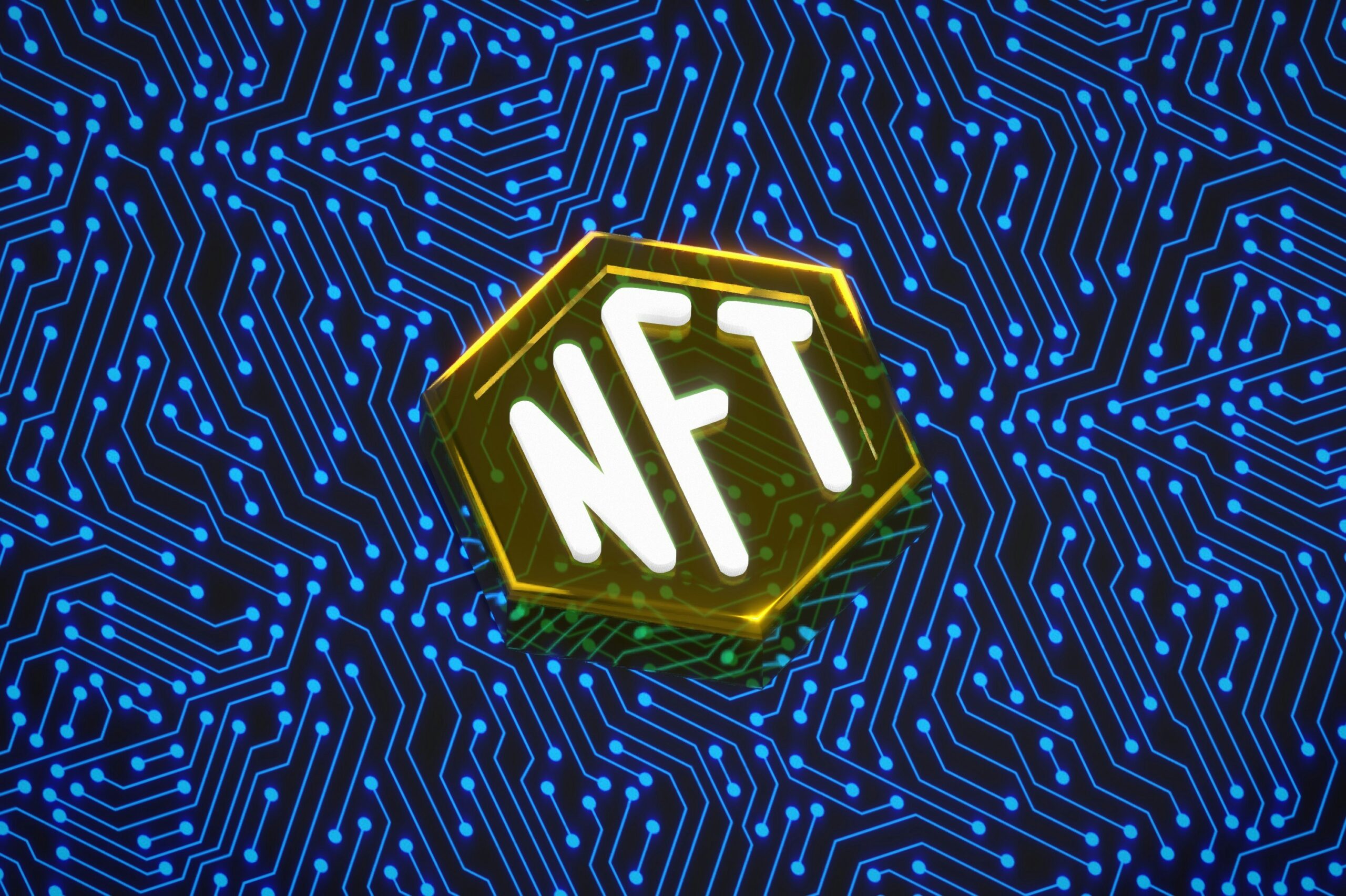Impact on the US Financial System
The digital revolution is changing how we think about money, especially with Bitcoin. This cryptocurrency is leading a big change in the US financial system. It’s making old ways of handling money seem outdated.
Blockchain technology is at the heart of Bitcoin’s power. It’s changing how we do financial transactions. This change is affecting many areas, like banking, investments, and even how we send money across borders. As Bitcoin grows, it’s important to see how it’s changing the US financial scene.

Key Takeaways
- The rise of Bitcoin and its growing market capitalization have significantly impacted the US financial system.
- Blockchain technology, the foundation of cryptocurrencies, is revolutionizing traditional financial transactions.
- The decentralized nature of Bitcoin challenges the dominance of traditional banking and financial institutions.
- Cryptocurrency investing and the emergence of Decentralized Finance (DeFi) are transforming the way people manage their finances.
- Regulatory challenges and the adoption of cryptocurrencies will continue to shape the future of the US financial landscape.
Understanding Bitcoin and Blockchain Technology
Blockchain technology is at the heart of cryptocurrencies like Bitcoin. It’s changing the financial world. Blockchain is a digital ledger that records transactions on many computers. This technology makes digital asset transfers secure, transparent, and hard to tamper with.
The Fundamentals of Cryptocurrencies
Cryptocurrencies, like Bitcoin, use cryptography for secure transactions. They work on a decentralized network, without a central authority. This gives users more control and freedom over their digital assets.
How Blockchain Revolutionizes Financial Transactions
Blockchain has changed how we do financial transactions. It uses a distributed ledger for secure and transparent record-keeping. This means no need for banks or financial institutions to help with transactions. Transactions are now faster, more efficient, and safer from fraud.
| Feature | Traditional Finance | Blockchain-based Finance |
|---|---|---|
| Transaction Processing | Centralized, slow, and costly | Decentralized, fast, and low-cost |
| Record-keeping | Fragmented, opaque, and vulnerable to fraud | Transparent, tamper-evident, and secure |
| Accessibility | Limited to those with access to traditional financial services | Inclusive, enabling financial access to the unbanked and underbanked |
Learning about cryptocurrencies and blockchain technology opens up the world of digital assets and decentralized finance. It gives you insights into a rapidly changing field.
The Rise of Bitcoin and Its Market Capitalization
The cryptocurrency market has seen a huge jump in recent years, with Bitcoin leading the way. As the first and most famous cryptocurrency, Bitcoin has become a valuable digital asset. Its market capitalization, or the total value of all Bitcoins, has soared, catching the eye of investors and the world.
Bitcoin’s fast rise is due to several reasons. More people and companies are using it, and big investors are getting in on the action. Also, Bitcoin is rare, which makes it more valuable. As more people see Bitcoin’s worth, its price and market value keep going up.
| Metric | 2021 | 2022 | 2023 (Projected) |
|---|---|---|---|
| Bitcoin Price (USD) | $47,000 | $55,000 | $65,000 |
| Market Capitalization (USD) | $880 billion | $1 trillion | $1.2 trillion |
| Trading Volume (USD) | $2 trillion | $3 trillion | $4 trillion |
As the world of cryptocurrency keeps changing, Bitcoin’s market value is expected to grow even more. This will make Bitcoin a big player in the world of finance.
“Bitcoin’s rise has been nothing short of remarkable, with its market capitalization reaching unprecedented levels. This digital currency has not only captured the attention of investors but has also prompted a fundamental rethinking of traditional financial systems.”
Bitcoin’s market capitalization growing fast shows that more people and companies are accepting cryptocurrencies. As more join in, Bitcoin’s role in the financial world will only get bigger.

Bitcoin’s Impact on the Financial System
Bitcoin’s Disruptive Potential for Traditional Banking
Bitcoin and its blockchain technology are changing traditional banking. They make peer-to-peer transactions possible, cutting out the need for banks. This is a big deal for how we handle money.
Bitcoin is great for sending money across borders. It’s faster, cheaper, and safer than old ways. The blockchain technology also makes transactions more secure and trustworthy.
Bitcoin has led to new financial systems like DeFi. DeFi offers services like lending and trading without banks. This could help more people get financial services they need.
But, Bitcoin’s growth has raised concerns. Governments are figuring out how to handle crypto regulations and financial disruption. They’re trying to keep up with peer-to-peer transactions.

“The technology behind Bitcoin has the potential to revolutionize the way we think about and interact with the financial system.”
Decentralized Finance (DeFi) and Its Growing Influence
The world of cryptocurrency is changing fast, and Decentralized Finance (DeFi) is leading the way. DeFi uses blockchain technology to create a new financial system. It offers alternatives to old banking ways, opening doors for investors and users.
The Role of DeFi in the Crypto Ecosystem
DeFi uses blockchain for services like lending, borrowing, and trading. It does this without needing banks or other middlemen. This could make money easier to get, cut costs, and give users more control.
- DeFi lets people lend or borrow cryptocurrencies directly, skipping banks.
- Decentralized exchanges (DEXs) let you trade altcoins and other digital assets. They often have lower fees and better privacy than regular exchanges.
- Automated market makers (AMMs) use algorithms to set prices and make trades. They help keep the cryptocurrency markets running smoothly.
DeFi has grown a lot, with over $50 billion in value locked in protocols by 2021. This growth shows DeFi’s power to change finance and boost altcoin and cryptocurrency use.
| DeFi Metric | Value |
|---|---|
| Total Value Locked (TVL) | $50 billion+ |
| Number of DeFi Users | Over 2.5 million |
| Total Value Traded on DEXs | $1 trillion+ |
But DeFi’s fast growth also raises cryptocurrency regulations issues. Policymakers are figuring out how to handle this new financial world. Getting the rules right will help DeFi grow and become more accepted.

“The rise of decentralized finance (DeFi) represents a fundamental shift in the way financial services can be delivered, potentially challenging the traditional banking model and offering new opportunities for investors and users alike.”
Regulatory Challenges and Cryptocurrency Adoption
The crypto industry is growing fast, and governments worldwide are trying to create good crypto regulations. They aim to manage this new financial world. But, making rules for digital payment systems and cryptocurrencies is hard. Policymakers want to encourage new ideas and protect people at the same time.
One big problem is that there’s no single way to regulate cryptocurrencies globally. Countries have different rules, some are more open, others are stricter. This makes it hard for people and businesses to follow the law in different places.
- Ongoing debates around the classification of cryptocurrencies (e.g., as securities, commodities, or currencies)
- Concerns about the potential use of cryptocurrencies for illicit activities, such as money laundering and terrorist financing
- The need to balance consumer protection with the promotion of financial innovation
- Regulatory challenges surrounding the taxation of cryptocurrency transactions and holdings
Even with these hurdles, governments see the good in digital payment systems and cryptocurrencies. They help more people get into finance and make transactions faster. So, many countries are working on rules that help the crypto world grow safely.
| Country | Regulatory Stance | Key Initiatives |
|---|---|---|
| United States | Evolving, with a focus on consumer protection and anti-money laundering measures |
- SEC and CFTC oversight of cryptocurrencies
- Proposed regulations for stablecoins and digital assets
- Increased scrutiny of crypto exchanges and service providers
| European Union | Comprehensive regulatory framework, the Markets in Crypto-Assets (MiCA) regulation |
- Uniform rules for crypto-asset issuers and service providers
- Measures to address risks of money laundering and consumer protection
- Regulatory “passporting” system for crypto businesses
| China | Restrictive, with a ban on cryptocurrency trading and mining |
- Focus on development of central bank digital currency (CBDC)
- Crackdown on private cryptocurrencies and initial coin offerings (ICOs)
As crypto regulations and policies change, it’s important for everyone to talk about it. Policymakers, industry folks, and the public need to keep the conversation going. This way, the rules can keep up with the fast pace of digital payment systems and cryptocurrencies.
Bitcoin Investment Strategies and Risk Management
The world of cryptocurrency is always changing. Smart investors are looking into different bitcoin investment strategies and ways to manage risk. Whether you’re new to crypto or have been investing for a while, knowing the best coins to invest in and using long-term cryptocurrency investing methods is key to success.
Best Coins to Invest in Right Now
Experts say a good investment portfolio should have a mix of well-known and new cryptocurrencies. Some top coins to think about include:
- Bitcoin (BTC): The first and most popular cryptocurrency, known for its reliability and large market size.
- Ethereum (ETH): The second-largest cryptocurrency, famous for its smart contracts and growing DeFi ecosystem.
- Cardano (ADA): A blockchain platform focused on growth, sustainability, and decentralization.
- Solana (SOL): A fast and affordable blockchain for dApps, making it a favorite among developers.
Long-term Cryptocurrency Investing Approaches
For long-term cryptocurrency investing, patience and discipline are key. Some good strategies are:
- Dollar-Cost Averaging (DCA): Invest a set amount regularly, no matter the market, to even out price swings.
- Holding (HODL): A “buy and hold” strategy for the long haul, avoiding market timing.
- Diversification: Spread investments across different cryptocurrencies and assets to reduce risk and possibly increase returns.
Bitcoin investment and cryptocurrency investing need thorough research, risk management, and a smart plan. By picking the right coins and using long-term strategies, you can set yourself up for success in the ever-changing digital asset world.
| Cryptocurrency | Current Price | Market Cap | Year-to-Date Performance |
|---|---|---|---|
| Bitcoin (BTC) | $30,000 | $580 billion | +15% |
| Ethereum (ETH) | $1,800 | $220 billion | +25% |
| Cardano (ADA) | $0.50 | $17 billion | +40% |
| Solana (SOL) | $25 | $9 billion | +60% |
The Future of Digital Payment Systems
Digital payment systems are changing fast, thanks to cryptocurrencies and blockchain. These new technologies could change how we make financial deals. They make digital payment systems more open and easy to use, helping more people get into the financial world.
Peer-to-Peer Transactions and Financial Inclusion
Cryptocurrencies let people make peer-to-peer transactions without banks. This is a big deal because it can help people who don’t have bank accounts. It opens up financial services to those who couldn’t get them before.
Blockchain adds security, clearness, and speed to digital payment systems. This makes money moves safer and easier for more people. It’s especially good for places where banks are hard to find.
“The democratization of finance through decentralized digital payment systems and peer-to-peer transactions could be a game-changer for improving financial inclusion on a global scale.”
The future of digital payment systems looks bright. It promises to give power to the people, bring more into the financial world, and change how we do business online.
Blockchain Technology’s Impact on Various Industries
Blockchain technology, the foundation of cryptocurrencies like Bitcoin, is changing many industries. It’s a decentralized, transparent, and secure system. It’s already changing how businesses work, making things more open, efficient, and trustworthy.
Blockchain is making a big difference in many areas, from supply chains to healthcare and real estate. Let’s see how it’s changing the future of different industries:
Supply Chain Management
Blockchain is changing supply chains by making them more secure and open. It tracks goods from start to finish. This helps businesses track their products better, cuts down on fraud, and makes things more efficient.
Healthcare
In healthcare, blockchain helps keep patient records safe and share data easily. It makes healthcare data management better. This can lead to better health outcomes, lower costs, and more patient involvement in their care.
Real Estate
The real estate world is also set to benefit from blockchain. It automates and digitizes transactions like property transfers and rental agreements. This makes things more transparent, cuts down on paperwork, and speeds up transactions.
| Industry | Blockchain’s Impact |
|---|---|
| Supply Chain Management | Enhanced traceability, reduced fraud, improved efficiency |
| Healthcare | Secure data management, streamlined data sharing, improved patient outcomes |
| Real Estate | Automated and digitized transactions, enhanced transparency, faster and more secure processes |
As blockchain technology grows, its impact on industries will too. Businesses can make things better, more open, and find new ways to grow and innovate with it.
Bitcoin Price Predictions and Market Trends
The cryptocurrency market is always changing, and Bitcoin is at the center. It’s the first digital asset that has caught the eye of investors everywhere. Experts watch Bitcoin’s price closely, trying to figure out what makes it go up and down.
Analyzing Bitcoin’s Volatility and Growth Potential
Bitcoin’s price has seen big changes, exciting and tough for investors. Experts look at how rules, big investors, and feelings in the market affect Bitcoin’s price. This helps you understand where Bitcoin might go next and make smart choices with your money.
The size of the cryptocurrency market, led by Bitcoin, shows how healthy and growing it is. Watching the market’s ups and downs helps you spot new trends. It also prepares you for chances in the fast-changing world of digital assets.
More Articles
FAQ
What is Bitcoin and how does it impact the U.S. financial system?
Bitcoin is a new kind of money that’s changing finance in the U.S. It’s a digital currency that uses blockchain technology. This tech makes transactions safe, open, and direct between people, without banks.
What are the fundamentals of cryptocurrencies and how does blockchain technology revolutionize financial transactions?
Cryptocurrencies are digital money that use secret codes to keep transactions safe. Blockchain is the tech behind them. It’s a shared digital book that records all transactions, making them safe and open.
How has the market capitalization of Bitcoin grown over time?
Bitcoin’s value has skyrocketed, becoming a big player in digital assets. Its growth comes from being rare, secure, and widely accepted by investors.
How is Bitcoin disrupting traditional banking and financial institutions?
Bitcoin and blockchain are shaking up banks and finance. They’re changing how we make payments and could lead to new financial systems. This could make banks less powerful and introduce new ways to do finance.
What is Decentralized Finance (DeFi) and how is it influencing the crypto ecosystem?
DeFi is a new world of finance built on blockchain. It offers alternatives to banks and could change finance. But, it also faces rules and challenges as it grows.
What are the regulatory challenges surrounding cryptocurrency adoption?
Rules for crypto are still being made and changed. This affects how widely digital assets and payments can be used. Issues include taxes, protecting users, and the legal status of cryptocurrencies.
What are some investment strategies and best coins to consider for cryptocurrency investing?
Investing in crypto can be done in many ways. You can look at big coins like Bitcoin or newer ones. Always do your homework, spread out your investments, and know the risks.
How will cryptocurrencies and blockchain technology impact the future of digital payment systems?
Crypto and blockchain could change how we pay each other online. They promise faster, safer, and more open transactions. This could bring more people into the financial world and create new ways to shop and pay.
How is blockchain technology being applied across different industries beyond finance?
Blockchain is not just for finance. It’s being used in supply chains, healthcare, real estate, and more. It makes things secure, open, and fair, changing many fields.
What are the current trends and price predictions for Bitcoin and the broader cryptocurrency market?
Bitcoin’s price and the crypto market’s trends are shaped by many things. These include price swings, how widely they’re used, rules, and what people think. Looking at these can help guess Bitcoin’s future and the crypto market’s direction.


